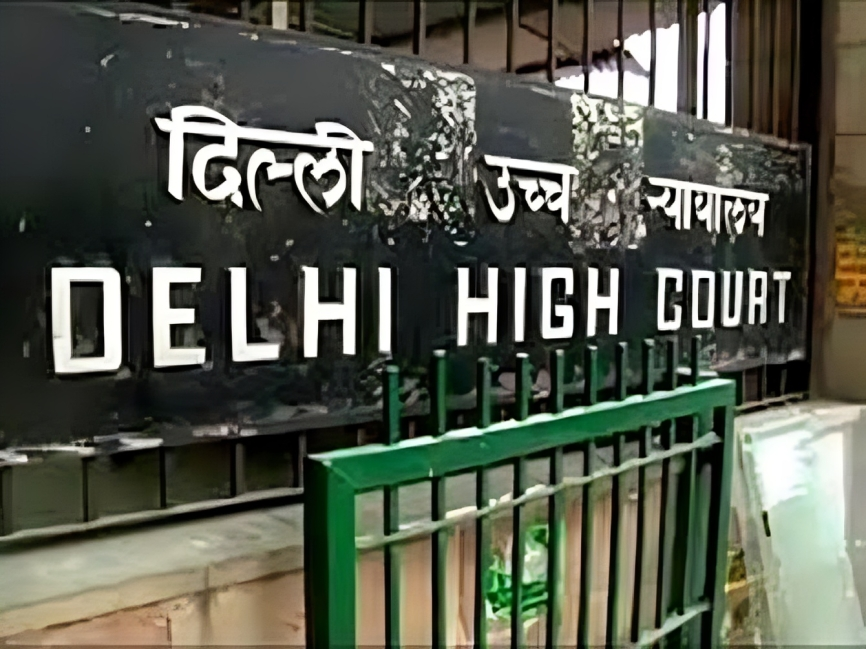HC’s Stance on Rights of the Accused: While Still in Investigation, can’t be Coerced to Reveal Passwords

Image Source: Rediff.com
Delhi High Court, in order of an applicant’s bail, observed that an ‘accused while still in investigation’ cannot be coerced to reveal passwords or details of personal information as it is a violation of Article 20(3) – the right against self-incrimination of the constitution. Article 20(3) of the constitution grants citizens the right, “No person accused of any offence shall be compelled to be a witness against himself.” Therefore, forcing the accused into giving details such as passwords during the investigation was a violation of his rights.
Delhi High Court, on hearing the bail plea of the accused, observed that the investigating agency, CBI, has been violating the applicant’s right. The applicant had an FIR lodged against him for having made millions of spam calls to the US from fraud call centres and having defrauded and cheated US citizens for about 20 million USD. The accused, who was the director of the company named E-sampark Softech Pvt. Ltd, has been under investigation since then. During which, all the electronic devices of the accused were seized by the investigating agency. The agency further forced the accused into disclosing passwords to the devices for recovering evidence.
CBI has been in opposition to the bail plea, calling the man “the real kingspin of the entire racket” since he was the alleged director of the company. They also claimed that the man failed to comply with the investigation when asked to provide passwords to the electronic devices seized by the agency.
A single-bench justice, Saurabh Banerjee, in his December 2023 order observed that while the accused is not only expected to join the investigation but also participate in it, coercing the accused into disclosing personal information such as passwords was a violation of his right that is ‘well protected’ under the constitution. The HC further ruled that since the evidence mainly comprised electronic media such as laptops and mobile phones, which are already in the custody of the investigative agency, it was far beyond the accused’s reach to make changes and alter the evidence. Also commenting on the complainants, “Since all those reside overseas, the man is also unlikely to influence the witnesses.”
Further, the HC observed that since CBI didn’t observe any misuse of liberty by the man during his interim bail of 203 days, the court doesn’t find the applicant to be of a flight risk or in a position that he would shun away from further investigation.
Lastly, the High Court emphasized the applicant’s right, saying, “Since the trial is still ongoing, the accused as per the FIR is still a suspect and thus keeping him behind bars leads to the violation of Article 22 of the constitution” (protection against arrest and detention in certain conditions). Following this, the man was granted bail given the condition that he furnishes a personal bond of Rs. 2 lakhs along with a surety of a family member/friend with no pending criminal cases against them for another 2 lakhs in case the applicant shuns away from further trials.
Team Profile

- News Writer
- Varsha Baisane, a CS and media student, is driven by curiosity and a love for adventure. Her passion for linguistics fuels a desire to engage in diverse conversations that bridge cultures and perspectives. Raised with a foundation of kindness, Dipa values and cherishes it in all her interactions. With a dynamic blend of technical and creative interests, she brings a unique perspective and a commitment to positive engagement in her academic and personal pursuits.
Latest entries
 English1 February 2024Man Kills Wife While Taking Her on a Long Drive, Later Shoots Himself
English1 February 2024Man Kills Wife While Taking Her on a Long Drive, Later Shoots Himself Crime31 January 2024Boy Sexually Harassed And Forced to Lick Slippers by 3: Arrested
Crime31 January 2024Boy Sexually Harassed And Forced to Lick Slippers by 3: Arrested Crime30 January 2024Boy Attacks Teen Girl with a Chemical, Calls it a General ‘Dislike for Girls’
Crime30 January 2024Boy Attacks Teen Girl with a Chemical, Calls it a General ‘Dislike for Girls’ Crime28 January 2024Gwalior Family Consisting of the Couple, Teenage Son Die in Suicide
Crime28 January 2024Gwalior Family Consisting of the Couple, Teenage Son Die in Suicide





